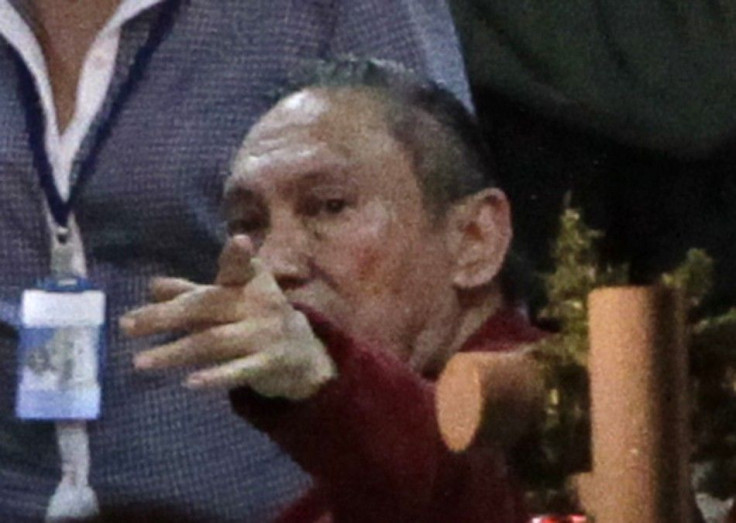Noriega Hospitalized in Stable Condition

(Reuters) - Manuel Noriega, Panama's drug-running military dictator of the 1980s, was taken from prison to a public hospital in Panama City on Sunday after suffering a possible stroke, but a top health official said he was stable.
Noriega, 77, was moved from the El Renacer prison to the Hospital Santo Tomas because of high blood pressure and a possible stroke, police said in a statement.
He has been put under observation in intensive care for 24 hours to see how it goes. He is conscious, has his bearings and they have not found any serious injury so far, Health Minister Franklin Vergara told a news conference.
Noriega, who was kept in solitary confinement at a spartan facility in the jungle on the Panama Canal, was extradited to Panama in December. He is serving a 20-year sentence for the murders of opponents during his rule.
He has spent the past two decades in prison - first in the United States and then France - for drug trafficking and money laundering. Noriega was ousted from power in 1989 by an invading U.S. force.
The one-time CIA protégé returned to his homeland in a wheelchair, a shadow of the man once known for waving a machete while delivering fiery speeches.
Noriega was tried and convicted in a Miami court in 1992 on eight counts of drug trafficking, money laundering and racketeering stemming from his time in power in the strategically located Central American nation.
Noriega's return home had little political impact on a country that has enjoyed an economic boom in recent years amid a $5.25 billion expansion of the Panama Canal.
Widely reviled when he was Panama's de facto leader from 1983 until 1989, his small cadre of remaining supporters has kept a low profile.
Activists hoped his return could shed light on the dictatorship's mysteries, including some 100 unsolved killings or disappearances in the period of army rule from 1968 to 1989.
(Writing by Michael O'Boyle; Editing by Eric Beech and Stacey Joyce)
© Copyright Thomson Reuters 2024. All rights reserved.











